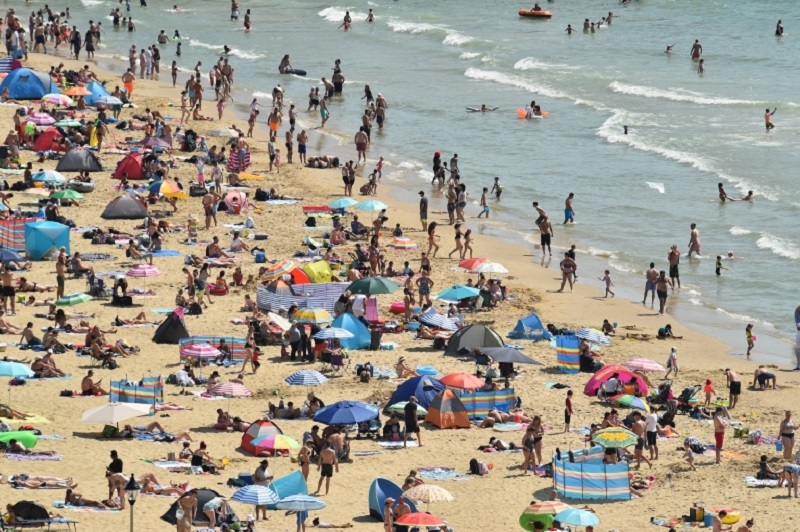LONDON, Aug 1 ― The Lunt family from Bath, in western England, had planned to visit Spain this summer but like so many British holidaymakers have had their plans upended by the coronavirus pandemic.
The family-of-five, who had booked two weeks on the Balearic island of Majorca next month, are now headed to Rock, an upmarket resort in the southwest English county Cornwall dubbed “Chelsea-on-Sea” after the wealthy London suburb.
They finally decided to swap the azure waters of the Mediterranean for the cooler currents of the North Atlantic amid growing fears about a second wave of Covid-19 sweeping Europe.
Initially, the family were worried they might test positive for the virus on arrival in Spain and have to spend their holiday in self-isolation, before the British government abruptly imposed its own quarantine.
“We were worried about having our temperature taken at the airport and potentially having to quarantine for two weeks,” Rosie Lunt, mother to a boy and two girls aged between five and nine, told AFP.
So instead they chose to stay at home in Britain ― which proved to be a good decision following the weekend order by the government to require everyone entering the UK from Spain to self-isolate for 14 days.
Quarantine spat
The British government's hastily-imposed new rules announced today follow a dramatic spike in virus cases in mainland Spain.
The controversial move drew criticism from the travel sector and Spanish Prime Minister Pedro Sanchez, but his British counterpart Boris Johnson has insisted the “swift and decisive” action is necessary.
In addition to the minor diplomatic fallout, the decision has again exposed the fragility of the tourist market, and people and places heavily reliant on it, as the deadly pandemic proves stubbornly resistant.
It is a major blow to Spain in particular, with the Exceltur tourism association estimating it could cost the travel sector there almost €9 billion (RM44.9 billion) in August and September.
The losses are not confined to the Spanish market.
The decision is already having huge repercussions for Britain's tour operators, who organise millions of Britons' annual summer visits to Spain.
UK tourists throng the country's resorts each year, partying in Ibiza, sunbathing on the Costa Brava and eating full English breakfasts in the Costa del Sol.
This summer that is unlikely, with UK travel trade association ABTA saying the quarantine would have “major financial implications” for British travel businesses.
It noted Spain was the most popular destination for British tourists last year, ahead of France and the US.
More than 18 million of them visited the country every year in 2017, 2018 and 2019, according to market research company Euromonitor.
Within days of the quarantine rollout Britain's biggest tour operator TUI said it was scrapping flights to Spain until early August, and on Thursday announced it was cutting 166 shops in Britain and Ireland.
Meanwhile the UK's struggling airlines and airports have said they were “disappointed” by the government's move, and called on it to introduce a virus testing regime at ports of entry.
Travel trade disaster
Alexis Frick, a research manager at Euromonitor, said over the last 15 years British tourists have accounted for almost a quarter of all holiday visits to Spain.
“Britain's overnight decision to make tourists travelling from Spain self-isolate for 14 days will create uncertainty among holidaymakers planning to visit the country in August,” Frick told AFP.
It seems unlikely that Spain will remain the only destination to be affected by the new quarantine rules.
UK ministers are said to be watching other countries closely including Croatia and Belgium.
The TSSA union, which represents staff in UK travel agencies, told AFP that any decision to expand the quarantine “would be a disaster for the travel trade, a real body blow for the industry”.
“Nobody wants a repeat of the collapse of Thomas Cook which cost the taxpayer over £158 million,” said TSSA leader, Manuel Cortes.
British travel group Thomas Cook went bust in 2019, leaving hundreds of thousands of holidaymakers stranded abroad.
UK government ministers have urged people to continue booking holidays but be “aware of the risk”. ― AFP-Relaxnews






















